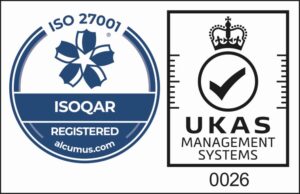The Rise of DevOps and its Impact on IT Operations
DevOps has emerged as a transformative approach to software development and IT operations, aiming to improve collaboration, agility, and efficiency within organizations. DevOps combines development (Dev) and operations (Ops) teams, breaking down silos and fostering a culture of collaboration and shared responsibility. This approach has had a profound impact on IT operations, revolutionizing how software is developed, deployed, and maintained. Here are some key aspects of the rise of DevOps and its impact on IT operations:
Enhanced Collaboration
DevOps encourages close collaboration between development and operations teams, promoting communication, shared goals, and joint decision-making. By breaking down silos and fostering collaboration, organizations can streamline processes, reduce handover delays, and improve overall efficiency. Development and operations teams work together from the early stages of software development to ensure that operational requirements are considered, leading to more reliable and maintainable software.
Continuous Integration and Deployment
DevOps emphasizes continuous integration and deployment practices, enabling organizations to deliver software updates and new features more frequently and efficiently. Automation tools and processes are used to build, test, and deploy software continuously, reducing manual errors and ensuring rapid delivery. This approach allows organizations to respond quickly to customer needs, address issues promptly, and deliver value to end-users in a timely manner.
Infrastructure as Code (IaC)
DevOps embraces the concept of Infrastructure as Code, where infrastructure configurations are managed using version-controlled code. This approach allows for the automation and reproducibility of infrastructure provisioning, reducing manual configuration and the potential for errors. Infrastructure changes can be tracked, tested, and deployed consistently, enabling faster and more reliable infrastructure provisioning and maintenance.
Automation and Orchestration
DevOps promotes the automation of repetitive and manual tasks, freeing up IT operations teams from mundane activities. By automating tasks such as provisioning servers, deploying applications, and monitoring infrastructure, organizations can increase efficiency, reduce human errors, and improve overall reliability. Automation tools and frameworks facilitate the orchestration of complex workflows, enabling organizations to achieve faster delivery cycles and increased operational efficiency.
Improved Monitoring and Feedback Loops
DevOps places a strong emphasis on monitoring and feedback loops to enable quick detection and resolution of issues. Organizations utilize monitoring tools and techniques to gain real-time visibility into the performance, availability, and security of their systems. By capturing and analyzing metrics, organizations can identify bottlenecks, track system behavior, and make data-driven decisions to optimize their IT operations continually.
Shift-Left Testing
In DevOps, testing is integrated into the development process from the outset, shifting it left in the software development lifecycle. Quality assurance teams collaborate closely with developers to build automated test suites, conduct continuous testing, and provide early feedback on the quality of the software. This approach improves the overall quality of the software, reduces time-to-market, and minimizes the likelihood of critical issues arising in production.
Scalability and Resilience
DevOps practices enable organizations to design scalable and resilient systems. Through automation, organizations can scale their infrastructure resources up or down based on demand, ensuring optimal performance and cost-efficiency. By implementing redundancy and failover mechanisms, organizations can enhance the resilience of their systems, minimizing downtime and providing a seamless user experience.
Cultural Shift and Continuous Learning
DevOps requires a cultural shift within organizations, emphasizing collaboration, shared responsibility, and a continuous learning mindset. IT operations teams become more empowered and involved in the software development process, while developers gain a deeper understanding of operational requirements. This cultural shift fosters a more cohesive and efficient work environment, where teams are motivated to continuously improve processes, experiment with new technologies, and embrace a culture of innovation.
The rise of DevOps has transformed how organizations approach IT operations. By embracing collaboration, automation, continuous integration, and delivery practices, organizations can achieve faster software delivery, improved quality, and increased operational efficiency. DevOps has become a driving force in enabling organizations to adapt to rapidly changing business needs and deliver value to customers more effectively.




